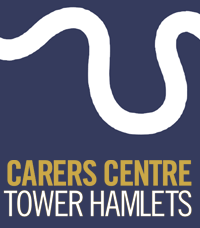Finding out what benefits you, and those you care for, might be entitled to can be confusing. We have a wealth of experience in giving benefit advice and obtaining benefits for carers and those they care for. Scroll down the page to learn about:
- Carers Allowance
- Universal Credit
- Employment and Support Allowance
- Personal Independence Payments
- Attendance Allowance
- Older People’s Benefits and Pension Credit
Our welfare benefits advisors are ready to help you access money which you or the person you look after could be entitled to. We can give you the information you need or help you fill in forms and make the applications.
We are also funded by Trust for London to provide extensive help with appeals and tribunals. If you or the person you care for has had their benefit declined or stopped, we can support you to challenge the decision.
If you are not sure what benefits you may be entitled to, you can request a benefits check for yourself and those you care for, our knowledgeable and experienced team can help you maximise your income.
Call us on 0207 790 1765 or email enquiries@ccth.org.uk to request a benefits check or for any other benefit query. You will need to join us first if you are not already registered.
You might be happy to complete forms yourself but need a bit of guidance on where to start or how to apply. You can find out more about the different benefits below, including how to apply. You could also use a benefits checker.
Carers Allowance
- You could get £81.90 a week if you care for someone at least 35 hours a week and they get certain benefits.
- You do not have to be related to, or live with, the person you care for.
- You do not get paid extra if you care for more than one person.
- If someone else also cares for the same person as you, only one of you can claim Carer’s Allowance.
GOV.UK – Employment and Support Allowance
Universal Credit
- Universal Credit is a payment to help with your living costs. It’s paid monthly.
- You may be able to get it if you’re on a low income, out of work or you cannot work.
Employment and Support Allowance (ESA)
You can apply for Employment and Support Allowance (ESA) if you have a disability or health condition that affects how much you can work.
ESA gives you:
- money to help with living costs if you’re unable to work
- support to get back into work if you’re able to
You can apply if you’re employed, self-employed or unemployed.
GOV.UK – Employment and Support Allowance
Personal Independence Payments (PIP)
Personal Independence Payment (PIP) can help with extra living costs if you have both:
- a long-term physical or mental health condition or disability
- difficulty doing certain everyday tasks or getting around because of your condition
You can get PIP even if you’re working, have savings or are getting most other benefits.
GOV.UK – Personal Independence Payment
Attendance Allowance (AA)
Is for someone who is state pension age or older and has a disability, but does not cover mobility needs. It’s paid at 2 different rates and how much you get depends on the level of care that you need because of your disability.
- You could get £72.65 or £108.55 a week to help with personal support if you’re both:
- physically or mentally disabled
You could also get extra Pension Credit, Housing Benefit or Council Tax Reduction if you get Attendance Allowance.
GOV.UK – Attendance Allowance
Older People’s Benefits
If you are aged 65+ or caring for someone who is 65+ and lives in Tower Hamlets? You could be eligible for age-related benefits. Contact our Older Persons Welfare Rights Caseworker, Fahima, for help with benefit checks, grants and other entitlements.
T: 07380 182 458
E: fahima@ccth.org.uk
Pension Credit
Provides extra money to help with your living costs if you’re over State Pension age and on a low income.
- You might get extra help if you’re a carer, severely disabled, or responsible for a child or young person.
- Pension Credit is separate from your State Pension.
- You can get Pension Credit even if you have other income, savings or own your own home.
- Pension Credit can also help with housing costs such as ground rent or service charges.
